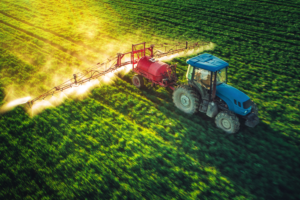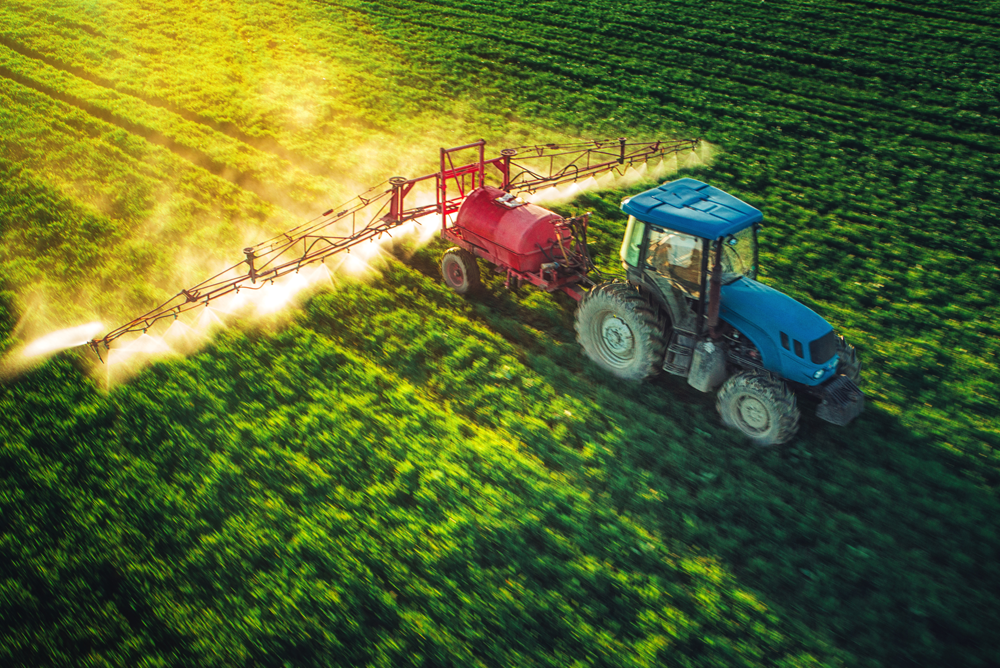Disclaimer: The information on our website is provided for general information purposes only. We make no representations or warranties of any kind, express or implied, about the completeness, accuracy, reliability, suitability or availability with respect to the website or the information contained on our website for any purpose. Any reliance on such information is therefore strictly at your own risk and we are not liable for any damages or losses arising out of or resulting from your reliance on any information contained on our website.
An agricultural equipment operator will work equipment that helps to efficiently perform activities on a farm such as till soil, plant seeds, and cultivate and harvest crops, just to name a few. These workers can have various titles other than equipment operator such as baler operator, farm laborer, irrigation worker, and tractor driver or operator.
Watch a video to learn what an agricultural equipment operator does:
How to Become an Agricultural Equipment Operator

Most agriculture works gain on-the-job training, and that goes for agricultural equipment operators as well. Though you may be trained on the job, an employer may want to see a high school diploma on an application though a high school diploma is not a requirement for a job. In fact, working on a farm can be an option for students that have yet to graduate high school. However, since agricultural equipment operators work with heavy machinery, there are age requirements you must meet to legally operate farm equipment.
On their Youth in Agriculture page (link opens in a new tab), The Occupational Safety and Health Administration (OSHA) state that those under 16 years of age are unable to operate this type of equipment and then list the hazards of operating such equipment such as rollovers, collisions, and even hazardous weather conditions.
Job Description of a Agricultural Equipment Operator
Agricultural equipment operators work with heavy farm machinery daily. They will inspect the equipment to ensure it is operating safely and effectively and may even know how to do light repair on the machinery. Safety is key for these workers, so they monitor the equipment while it’s in operation as well and look for hazards in weather or the land that would provide an unsafe work environment. Depending on the farm, they may operate a variety of farm equipment and may also help load products or solutions into their equipment for spreading. These workers would be outdoors a majority of the time and may work long days, especially during busy times of the year.
Free Teacher and Student Resources
The National Agriculture Safety Database has a free Tractor Operator Safety Lesson Plan (link opens in a new tab) that will walk teachers and students through the content to learn to safely operator a tractor. To learn more about farming, you can also check out the National Young Farmers Coalition website (link opens in a new tab).
Agricultural Workers Career Video
Agricultural workers need physical strength and stamina to keep up with their tasks, but they also need technical skills and strong teamwork. These workers maintain crops and tend to livestock, under the supervision of farmers and ranchers. Although some agricultural workers do all types of work around a farm, many focus on a few tasks. Agricultural equipment operators use tractors, combines, conveyor belts, and other farm equipment to plow and sow seeds, then maintain and harvest crops. They also perform minor repairs on the equipment. Crop, nursery, and greenhouse farmworkers and laborers grow fruit, nuts, trees, flowers, and other crops through every phase from planting and pruning, to harvesting and loading for shipment.
Farm and ranch animal farmworkers feed and care for animals, including cattle, pigs, goats, fish, and bees. They monitor their health, clean shelters, and administer medications or insecticides. Animal breeders select and breed animals to produce offspring with desired characteristics, such as chickens that lay more eggs. Some raise cats, dogs, and other pets. Many agricultural workers have seasonal schedules, with longer hours during planting or harvesting times.
The work is nearly all outdoors in all kinds of weather, and involves lifting, crouching, and carrying heavy tools. Risks include exposure to pesticides, and injury from farm machinery or farm animals. Typically, specific education is not required, and on-the-job training is provided. Animal breeders need a high school diploma or equivalent, and must be licensed in some states. A valid driver’s license is required for some jobs.
Article Citations
Bureau of Labor Statistics, U.S. Department of Labor, Occupational Outlook Handbook, Agricultural Workers.
National Center for O*NET Development. 45-2091.00. O*NET OnLine. This page includes information from O*NET OnLine by the U.S. Department of Labor, Employment and Training Administration (USDOL/ETA). Used under the CC BY 4.0 license. O*NET® is a trademark of USDOL/ETA. RethinkOldSchool, Inc. has modified all or some of this information. USDOL/ETA has not approved, endorsed, or tested these modifications.
The career video is in the public domain from the U. S. Department of Labor, Employment and Training Administration.

